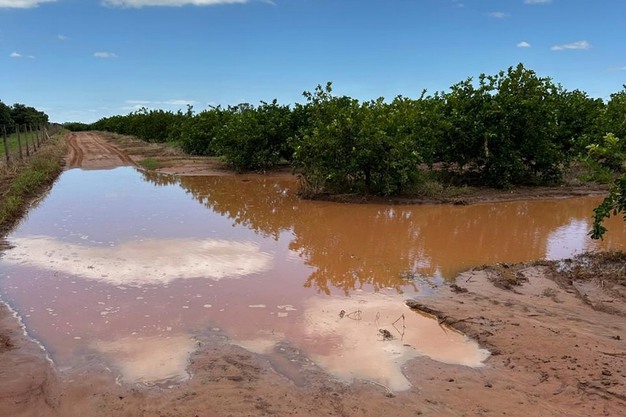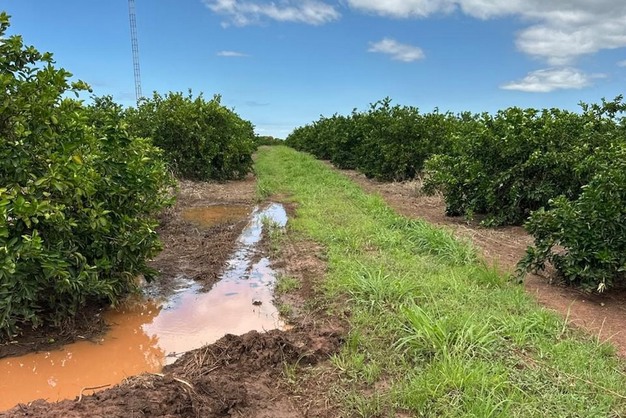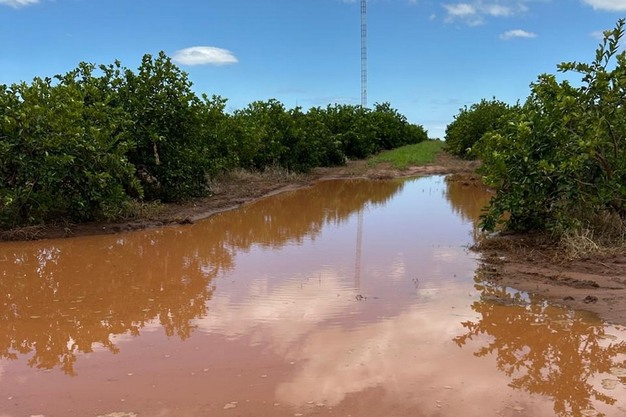As if battling drought and now rain is not enough Brazilian lime exports are now also struggling with long delays of up to 38 days with shipping. Sérgio Negrão, CEO and co-founder of the exporter Jagrao in Brazil, says "After a long and severe drought we now have enough rain. We suffered from the drought in Brazil, now we suffer with maritime logistics."
 Brazilian lime producers say they are so happy to see mud in their fields again after a long period of drought.
Brazilian lime producers say they are so happy to see mud in their fields again after a long period of drought.
He says they are very relieved to receive the rain. "In the third week of November after a long and severe drought, it started to rain heavily here in the State of São Paulo. And it continues to rain three or four times a week, which is great. The rivers, lakes, and water reservoirs are returning to their normal levels."
However, he says, although the current rainfall is good, the Brazilian lime production will be affected by the drought with lower volumes expected next year. "The limes have also felt the benefits of the rain, but this year we will not have a harvest like in other years. Production at the beginning of the year will be reduced by half in 2025, which could raise prices here in Brazil and perhaps keep prices at average levels in Europe."

Shipping delays of 38 days
Negrão says now the shipping delays make their lives difficult. "What has made life very complicated for producers are the shipping companies. Ship delays have been caused mainly by congestion in European ports. This directly impacts the departure of the ship from the port of origin as well as the arrival of the cargo at the destination. Shipping companies are working with transshipment strategies in order to minimize even greater impacts on European ports, but as a result, transit times end up increasing. For example, for shipments to London, the transit time is on average 16 days, but it is reaching 38 days - which would be a direct shipment, there have been transshipments in two ports - Rotterdam and Tanger Med. In transshipments alone, the fruit is held up for an average of 12 days. This is terrible for the quality of the fruit. Another problem is that the delays of the ships take away sales on specific dates, such as the end-of-year festivities. Even worse, we are in the hands of the shipping companies and nothing can be done."

As a result of the delays, several vessels from Brazil are expected to arrive in Europe during the same week of Christmas. "Several ships will arrive together next week. This always affects prices and sales. Our customers are aware, but the shipping company delays are so unpredictable, it leaves everyone in a bad situation. The customers are not happy, but they know the farmers are not the ones to be blamed," concludes Negrão.
For more information:
Sérgio Negrão
Jagrao
Tel: +55 169 960 99462
Email: [email protected]
www.jagraobrazil.com
